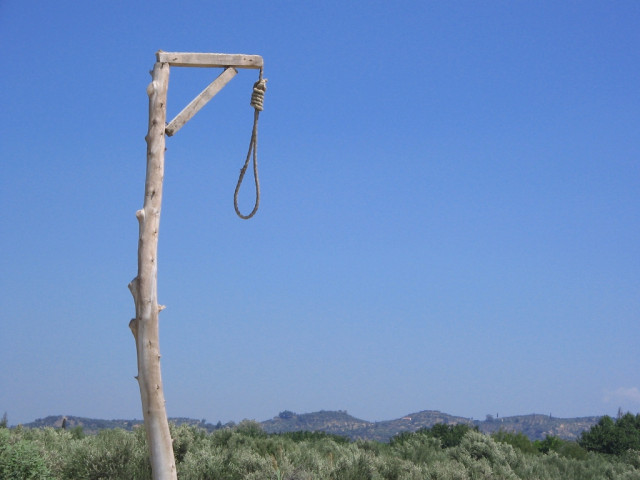Senate session: Government waters down figures on death-row convicts
HRCP refutes government figure of 547 persons.

HRCP refutes government figure of 547 persons. PHOTO: FILE
The federal government on Friday claimed that there are only a total of 547 persons on death row in the country – a figure strongly contested by human rights organisations.
The interior ministry furnished these statistics in the Senate in written reply to a question asked by Pakistan Peoples Party’s lawmaker Syeda Sughra Imam.
Of these prisoners, 63 were awarded death sentences on their involvement in terrorist activities while the rest had committed murders, the ministry’s reply said.
However, these figures provided by the ministry were far below the statistics published by the Human Rights Commission of Pakistan (HRCP) and other human rights organisations in the country over the years.
In its letter to the prime minister and president calling for abolishing the death sentence, HRCP in September last year quoted that there were more than 8,000 convicts on death row in the country. Of these, 450 were awaiting execution by August 2013.
When contacted, an official of the HRCP told The Express Tribune that it gets figures from prison authorities every year. There were around 6,000 persons on death row in Punjab when the last figures were published.
He said HRCP was waiting for the latest figures for 2013 from the government before it publishes its new annual report.
Except one inmate Muhammed Hussain, who was executed on November 14, 2012 under the orders of a military court, no execution has been carried out in Pakistan since 2008.
The last government of PPP through a moratorium stopped executions under death penalties.
Pakistan also ratified the International Covenant on Civil and Political Rights (ICCPR) a few years back and, at the occasion of the UN Universal Period Review in October 2012, supported recommendations by other states to maintain the moratorium.
The incumbent government says that it has not taken any final decision to continue or discontinue the moratorium. Anti-death penalty activists and some Western countries have been campaigning to abolish the death sentence.
Minister of State for Education Balighur Rehman on the floor of the house said, “There was no moratorium on death penalty in the country.” He added that the death penalties are held in ‘abeyance’.
Sughra Imam contested the statement of the minister, saying he was unable to clarify the matter.
She later told The Express Tribune that the government never provides proper replies to the queries of members.
When asked about the contrasting figures of HRCP and the government, she said the assumption is that the government provides figures of those inmates for whom all options of appeal have been exhausted.
She said her question was very clear and the government should have given a detailed reply.
Under the law, once death penalty is awarded, the convict has the right to appeal in a high court and the Supreme Court. If these options are also exhausted, a final mercy appeal can be filed to the president of Pakistan.
According to the interior ministry’s figures of crimes reported since 2008, a total of 3,099 cases of kidnapping for ransom were registered in the country. The ministry also claimed police registered 1,623 cases of gang rape and 112,134 cases of robberies during this period. It further catalogued 1,257 cases of ‘missing’ persons.
Published in The Express Tribune, February 15th, 2014.












1724319076-0/Untitled-design-(5)1724319076-0-208x130.webp)






COMMENTS
Comments are moderated and generally will be posted if they are on-topic and not abusive.
For more information, please see our Comments FAQ